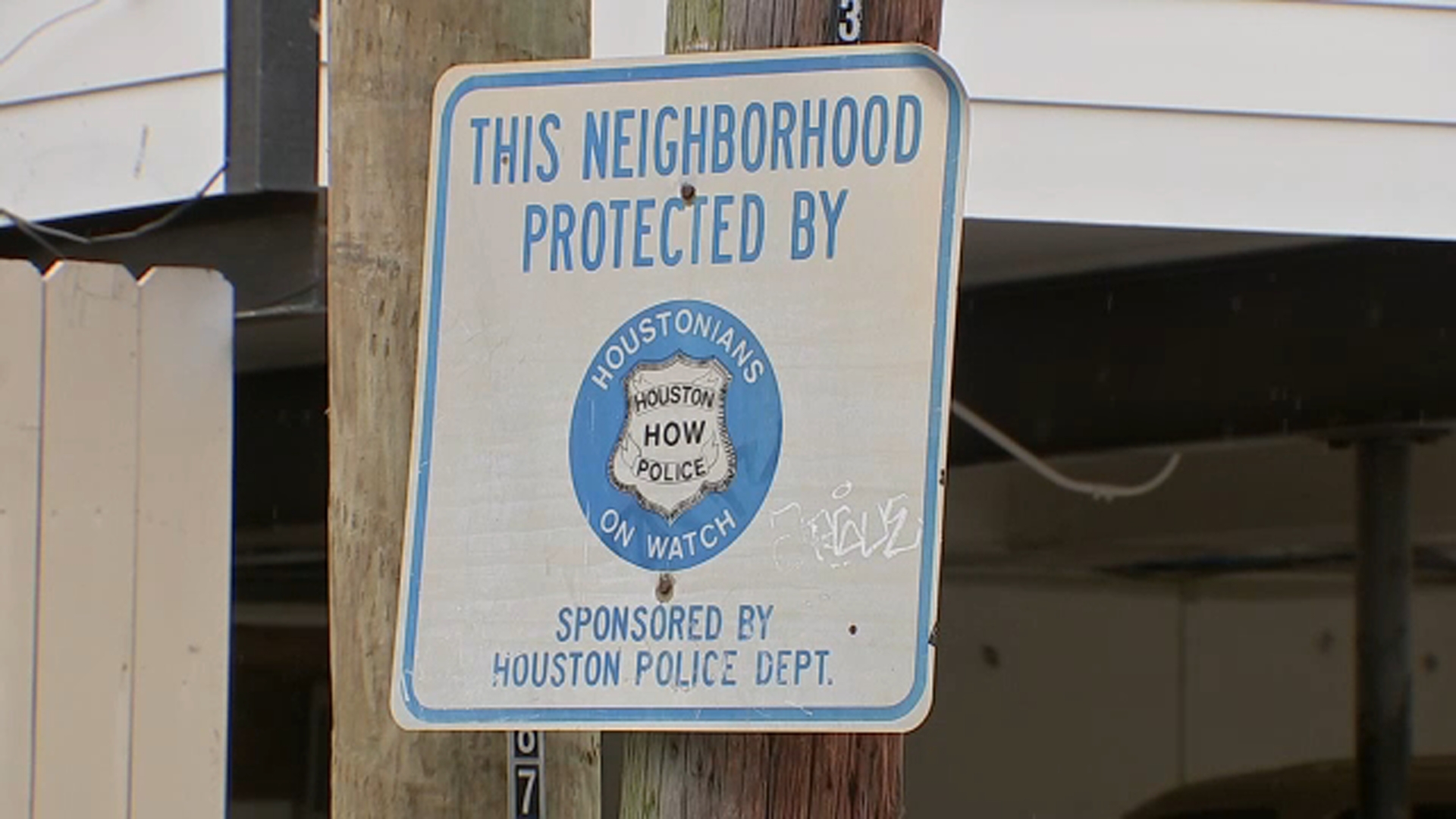DeAndre Hopkins trade grade: The Texans flunked, and the Cardinals got an elite receiver

Even by Bill O'Brien's standards, the Cardinals and Texans made a stunning trade on Monday afternoon. Houston traded away arguably its second-most valuable player, star wide receiver DeAndre Hopkins, netting oft-injured running back David Johnson and a second-round pick in the process.
While I appreciate O'Brien's thoughtfulness in giving us a fascinating swap to discuss in these sport-free times, I feel for Texans fans who just lost a franchise icon in the prime of his career. Here are my thoughts on what might be the biggest trade we'll see this offseason:
Texans trade DeAndre Hopkins to Cardinals for David Johnson
Houston Texans get: RB David Johnson, 2020 second-round pick, 2021 fourth-round pick
Arizona Cardinals get: WR DeAndre Hopkins, 2020 fourth-round pick
Cardinals grade: B+
Texans grade: F
My first instinct when I saw the terms of this trade was to worry whether Hopkins had lost a limb. My second instinct was to give the Texans side of this deal the same grade safety Tyrann Mathieu awarded his former team. This is a jaw-dropping, mind-bending, inexplicable trade for O'Brien, whose bizarre run as Texans general manager is going to be the subject of a 30 for 30 documentary one day.
Let's start with Johnson, who should have had negative trade value, especially after the Cardinals slapped the transition tag on Kenyan Drake earlier this morning. Johnson is now three years removed from his only productive NFL season. He missed almost the entire 2017 season with a wrist injury and has been a replacement-level back over the last two seasons. The Cardinals' offense instantly got better when they replaced him with Drake, who was available for a late-round pick from the Dolphins.
Johnson would likely be in line to get a one-year deal in the $2 million range if he hit the open market. Instead, his $10.2 million base salary is already guaranteed for 2020, and $2.1 million of his base salary in 2021 guarantees in five days. Throw in $960,000 in per-game roster bonuses and the Texans are on the hook for more than $13 million for Johnson over the next 12 months.
Johnson's deal is about $11 million underwater. If the Cardinals wanted to trade Johnson's deal to a rational team, my best estimate is that they would have needed to attach a third-round pick to get it done, and even that would have been on the light end of possible compensation. The Texans have now spent a third-round pick to acquire Duke Johnson and dealt away one of the best wide receivers in football because he wasn't enough to satisfy O'Brien's need at the running back position.
Meanwhile, the Texans got league-average play from Carlos Hyde after acquiring him when the Chiefs were about to cut Hyde at the end of the preseason. Hyde declined an offer from the team last week, and O'Brien's response appears to have been the equivalent of a fan punching a hole in their television after a loss. It would be one thing if the Texans were acquiring Ezekiel Elliott or some superstar back, but independent of his contract, David Johnson probably profiles as the pass-catching, lower-usage half of a running back rotation at the moment. That's exactly what O'Brien already had in Duke Johnson. If anything, the Texans still probably need to add a back who can work between the tackles.
Instead of sending a third-round pick to ship off Johnson, the Cardinals somehow managed to ship off Johnson by swapping fourth-round picks with the Texans. When you consider that the Texans are sending their 2020 fourth-rounder and getting a 2021 fourth-rounder in return, most teams would actually consider the pick swap a win for the Cardinals. I honestly admire Arizona general manager Steve Keim's audacity in even asking to swap fourth-rounders; it's as if someone offered you $1,000 for your VHS copy of "Mr. Deeds" and you asked that person for more before saying yes.
That half of the deal alone is a disaster for the Texans. The other half -- shipping out an unquestioned, bona fide star at wide receiver for the 40th pick in the draft -- is somehow even worse. I don't need to tell you how good Hopkins is, but remember that he was even posting huge numbers while O'Brien was saddling him with anonymous tall quarterbacks like Ryan Mallett, Tom Savageand Brock Osweiler, let alone once Deshaun Watson got there.
Watson has just nine career dropbacks without Hopkins in the lineup, and when an ailing Hopkins tried to grit his way through a playoff game against the Colts with a significant shoulder injury, Watson was 29-of-49 passing for just 235 yards with a passer rating of 69.7. The Texans are stuck with a pair of deep threats as their top wideouts in Will Fuller and Kenny Stills. Fuller is basically locked in as Houston's No. 1 wideout now, which is scary given the frequency with which the former Notre Dame star gets injured. Fuller has played about 36 complete games out of 64 possible contests across his four pro seasons. Do the Texans now extend Fuller to help pacify fans furious about the Hopkins deal?
We saw what the market for a franchise wide receiver on a second contract looks like last year when the Giants traded Odell Beckham Jr. to the Browns. Hopkins has a better off-field reputation and has been both healthier and more productive than OBJ, although Beckham was a year younger when he was dealt. The Browns sent the 17th and 95th picks and a starting strong safety,Jabrill Peppers, to acquire Beckham. The Texans are getting the 40th pick from the Cardinals for Hopkins.
You can argue that this draft is deep in wide receivers and that the Texans can try to replace Hopkins by using the second-round pick they acquired from the Cardinals on one of those wideouts, but there's just no way the Texans can expect to get anything close to Hopkins with that pick. The Texans are also down their first-round pick from the Laremy Tunsil trade and don't have their first- or second-round pick in 2021, so it wouldn't shock me if O'Brien used this pick to address the defensive side of the ball.
Comments after the trade have suggested Hopkins wants a new contract and that there was friction between O'Brien and his star receiver. I don't doubt those claims to be true, but they miss the point. Even if O'Brien decided that it was time to move on from Hopkins and didn't want to reward a frustrated player who was clamoring for a new deal, there's no way O'Brien can settle for a mid-second-round pick, let alone simultaneously sending a pick swap to acquire a distressed, underwater contract.
Hopkins is a franchise wide receiver in a league in which teams like the Jets, Colts, Raiders and Dolphins all have significant cap space and a need for a star wide receiver. The Ravens got a better deal for Hayden Hurst on Monday than the Texans got for Hopkins. Bill Belichick has moved on from star wide receivers like Deion Branch, Terry Glenn and Randy Moss in the past, but none was at the height of his powers like Hopkins, and Belichick was able to extract better deals for both Branch and Moss. Even if Hopkins falls flat on his face in Arizona and Johnson returns to form in Houston, this would be a disastrous trade for the Texans in terms of failing to maximize or remotely comprehend player value, which has repeatedly been a problem for O'Brien.
The only mild criticism I can think of when it comes to the Cardinals here is that they've now devoted another asset to adding weapons for Kyler Murray when they need to add pieces for the league's 23rd-ranked defense by DVOA. The Cardinals re-signed Larry Fitzgerald this offseason, transition-tagged Drake and now have three second-round picks committed to their wideout core in Christian Kirk, Andy Isabellaand the second-rounder they shipped to the Texans for Hopkins. It's good to give your young quarterback weapons, but they've placed a lot of eggs in this basket.
Ideally, the Cardinals would let Drake leave and devote the rest of their offseason to plugging holes on the defense, but this is a trade Arizona should and would make 100 times out of 100, regardless of the moves it made before the deal. The Cardinals will likely rip up the three years and $39.9 million remaining on Hopkins' deal and give him an extension, and while that will make him less valuable in terms of surplus value, adding a truly special talent to the roster is an easy victory for the Cards.








